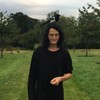Photos by Nick Morris
This article was originally published by FIGHTLAND in January 2015"What's a photographer?" barks the old man. "Is it a type of dog? Would he like to meet my German shepherd? They'd make lovely pups…"I'd been warned that Tony Burns, the septuagenarian head coach of legendry East London boxing club the Repton, might be "a bit weird". "Whatever he says," a former Repton boy advised over the phone, "just laugh it off and you won't have any problems. It's just his way…"A lot of boxers seem to go a bit ripe in their old age – possibly something to do with being repeatedly hit over the head with leather-bound lumps of bone and meat. But somewhere in Tony Burns' bruised peach of a brain the secret to sporting success lurks like a lucky maggot. Of all the amateur boxing clubs across Britain claiming to be 'the Home of Champions', the Repton is arguably the only one with the right to the title. Over the years the club has turned out hundreds of champions – and Tony Burns has personally coached over two hundred of them. "I've been to all 10 Olympics," he recalls. "Fucking hell… Had boxers in every Olympics since Mexico '68. The Olympics is a very, very hard fight.""Every other day there's a hundred kids down here, all boxing and steaming," says Burns, explaining the club's success. "I look at them and I think, you know: he ain't bad, he ain't bad, he ain't bad. They're all talented kids – mainly Travellers. We've always had a gym full of youngsters… There's a natural ability about them."From the outside the Repton doesn't look like very much: a slightly depressing pile of bricks tucked away off Brick Lane that could easily be mistaken for a public toilet. Which, in a way, it once was – inside, the high ceilings, tiles, and elegant arches make the building's past life as a Victorian Bathhouse known.The raised ring in the middle must be an inspiring, slightly intimidating, place for a young boxer to train. From all four walls, rows and rows of the club's past heroes grin down. There's John H. Stracy, one time welterweight champion of the world with 37 knockouts to his name; Olympic gold medallist Audley Harrison; a trio of former middleweight world champions, Maurice Hope, Darren Barker and Andy Lee (the latter was the first Irish Traveller to hold a world title); Ray Winstone, the tough guy actor who, as a Repton boy, won 80 out of 88 fights; and, perhaps most intimidating of all, the Kray twins.
"I've been to all 10 Olympics," he recalls. "Fucking hell… Had boxers in every Olympics since Mexico '68. The Olympics is a very, very hard fight.""Every other day there's a hundred kids down here, all boxing and steaming," says Burns, explaining the club's success. "I look at them and I think, you know: he ain't bad, he ain't bad, he ain't bad. They're all talented kids – mainly Travellers. We've always had a gym full of youngsters… There's a natural ability about them."From the outside the Repton doesn't look like very much: a slightly depressing pile of bricks tucked away off Brick Lane that could easily be mistaken for a public toilet. Which, in a way, it once was – inside, the high ceilings, tiles, and elegant arches make the building's past life as a Victorian Bathhouse known.The raised ring in the middle must be an inspiring, slightly intimidating, place for a young boxer to train. From all four walls, rows and rows of the club's past heroes grin down. There's John H. Stracy, one time welterweight champion of the world with 37 knockouts to his name; Olympic gold medallist Audley Harrison; a trio of former middleweight world champions, Maurice Hope, Darren Barker and Andy Lee (the latter was the first Irish Traveller to hold a world title); Ray Winstone, the tough guy actor who, as a Repton boy, won 80 out of 88 fights; and, perhaps most intimidating of all, the Kray twins.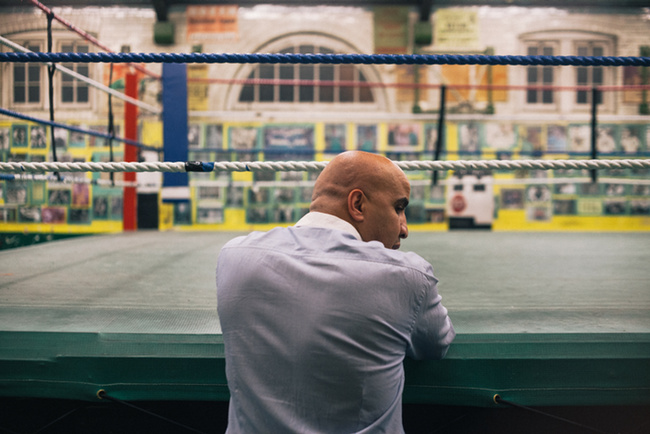 Ronnie and Reggie Kray are two of the East End's most infamous sons. For their record of arson, robbery, extortion and murder, most remember them as ruthless gangsters. They once reportedly stabbed a rival so many times his liver fell out. So they flushed it down the toilet. Others remember them as community heroes. Aside from the odd spattering of guts and gore, the story goes, they kept the streets clean and the kids safe.Whatever they went on to be – heroes or villains – they started off as boxers and trained at the Repton. Tony remembers them as "nice fellas"."They were very good," he says. "No, not very good – but good. You wouldn't put anyone in the ring with them. Not if you've got kids on the way up, you know what I mean. You'd be more careful… Reggie was a bit more talented than Ronnie. Ronnie was a crank really. Don't put that! Oh no, it's alright – he's dead! Hahaha!"
Ronnie and Reggie Kray are two of the East End's most infamous sons. For their record of arson, robbery, extortion and murder, most remember them as ruthless gangsters. They once reportedly stabbed a rival so many times his liver fell out. So they flushed it down the toilet. Others remember them as community heroes. Aside from the odd spattering of guts and gore, the story goes, they kept the streets clean and the kids safe.Whatever they went on to be – heroes or villains – they started off as boxers and trained at the Repton. Tony remembers them as "nice fellas"."They were very good," he says. "No, not very good – but good. You wouldn't put anyone in the ring with them. Not if you've got kids on the way up, you know what I mean. You'd be more careful… Reggie was a bit more talented than Ronnie. Ronnie was a crank really. Don't put that! Oh no, it's alright – he's dead! Hahaha!"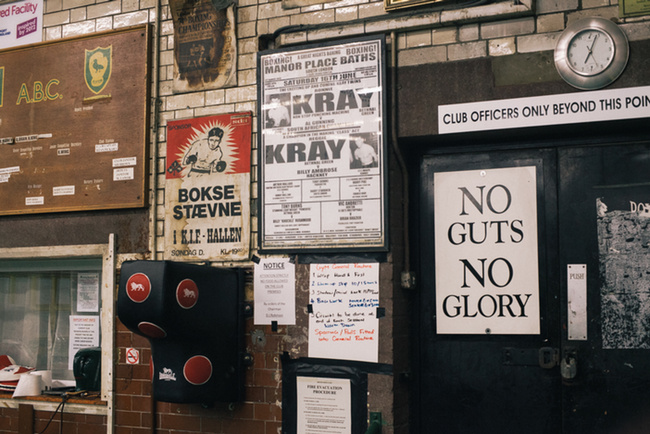 The story of the Kray twins hints at the somewhat disquieting reality that lurks behind the Repton's great success. "Around here," Tony has stated in the past, "there are two things for a working-class kid to do: steal or box." The situation is not quite as bleak as that, but there's no doubt that for a lot of kids in the club's catchment area opportunities are limited. Tower Hamlets, the London borough within which the Repton resides, has the highest rate of youth poverty in the UK, and, thanks to cuts to government funding, youth clubs in Britain have been closing at a rate of about a hundred per year for the last few years. The Repton is one of the few remaining beacons of hope."The juniors from this club – a lot of them are travelling kids," says Belfast born coach Gary McCarthy. "Once they're able to stand up they've got boxing gloves on. Boxing… gives them something to do – because a lot of them don't have much to do, they don't go to school, generally, so a boxing club is their school almost, so they put all their energy into it. And their parents put all their energy into it too. They aren't allowed to leave really."Getting kids off the street is "integral to what we do," he says. "Our seniors are in this gym three nights a week, sometimes four sessions a week. This is somewhere they can come and they're not getting into trouble. They're actually enhancing themselves. They're getting discipline, they're learning self-control, they're learning to box and that's brining stuff out in them."
The story of the Kray twins hints at the somewhat disquieting reality that lurks behind the Repton's great success. "Around here," Tony has stated in the past, "there are two things for a working-class kid to do: steal or box." The situation is not quite as bleak as that, but there's no doubt that for a lot of kids in the club's catchment area opportunities are limited. Tower Hamlets, the London borough within which the Repton resides, has the highest rate of youth poverty in the UK, and, thanks to cuts to government funding, youth clubs in Britain have been closing at a rate of about a hundred per year for the last few years. The Repton is one of the few remaining beacons of hope."The juniors from this club – a lot of them are travelling kids," says Belfast born coach Gary McCarthy. "Once they're able to stand up they've got boxing gloves on. Boxing… gives them something to do – because a lot of them don't have much to do, they don't go to school, generally, so a boxing club is their school almost, so they put all their energy into it. And their parents put all their energy into it too. They aren't allowed to leave really."Getting kids off the street is "integral to what we do," he says. "Our seniors are in this gym three nights a week, sometimes four sessions a week. This is somewhere they can come and they're not getting into trouble. They're actually enhancing themselves. They're getting discipline, they're learning self-control, they're learning to box and that's brining stuff out in them."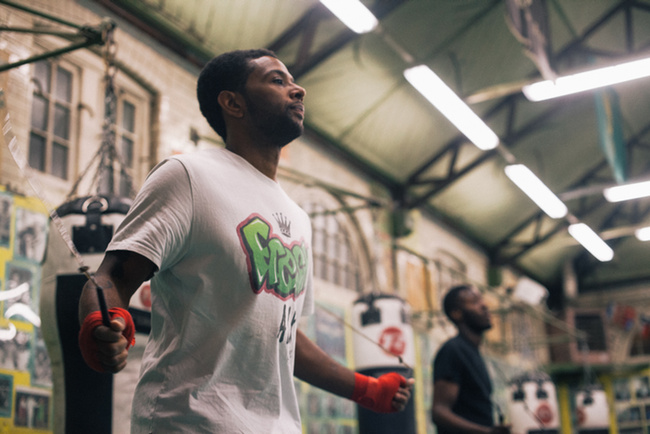 The Repton's reputation has not always been so right on. It's sometimes said that boxers are colour-blind – or at least that the only colours they care about are the reds and greens of blood and money – but at the Repton this has not always been the case.When Maurice Hope's family moved to Britain from Antigua in 1961, he became one of the first non-white members of the club. "I remember one fellow spat in my face," he reports in E. Cashmore's Black Sportsmen. "I'd be in the shower and they'd push me out, actually push me out saying, 'you black so-and-so'. This shocked me 'cause I'd left Antigua with no idea what colour prejudice was, no idea…"The atmosphere in the room goes icy when I bring this up. "He said that, did he?" growls Burns. The cold silence is mercifully broken by an incoming call. It's Maurice Hope himself, sending his respects. Burns looks victorious. "In those days there was racism in whatever sport you were involved in," says Gary McCarthy. "Boxing, or football, there was racism, that was the bottom line."
The Repton's reputation has not always been so right on. It's sometimes said that boxers are colour-blind – or at least that the only colours they care about are the reds and greens of blood and money – but at the Repton this has not always been the case.When Maurice Hope's family moved to Britain from Antigua in 1961, he became one of the first non-white members of the club. "I remember one fellow spat in my face," he reports in E. Cashmore's Black Sportsmen. "I'd be in the shower and they'd push me out, actually push me out saying, 'you black so-and-so'. This shocked me 'cause I'd left Antigua with no idea what colour prejudice was, no idea…"The atmosphere in the room goes icy when I bring this up. "He said that, did he?" growls Burns. The cold silence is mercifully broken by an incoming call. It's Maurice Hope himself, sending his respects. Burns looks victorious. "In those days there was racism in whatever sport you were involved in," says Gary McCarthy. "Boxing, or football, there was racism, that was the bottom line."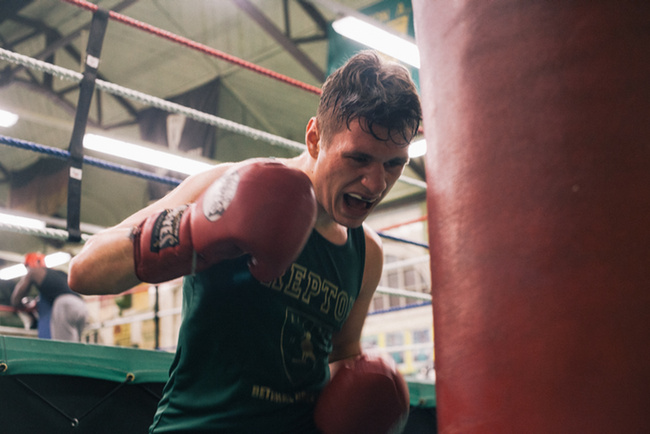 Thanks in part to the determination of kids like Maurice, who fought and argued for his right to a place in the ring – and went on to become schoolboy champion, and then world champion – attitudes slowly changed.East End boy made good Ray Winstone, who came to the club a generation or so after Hope, has spoken in the past about just how important this was."The thing about Repton," he said, "and probably boxing in general, is that there was no colour bar. Everyone was equal and you learnt that, because they were your teammates. And you got to meet people that you wouldn't necessarily meet on the street because everyone kept themselves to themselves. You learn something about morality, about respect and discipline, and that will stand you in good stead for the rest of your life."I learnt my basics, and my thoughts on life in this gym. Everything I learnt was in this gaff here. And that's why probably I can never forget about this club."@CharlieGilmour
Thanks in part to the determination of kids like Maurice, who fought and argued for his right to a place in the ring – and went on to become schoolboy champion, and then world champion – attitudes slowly changed.East End boy made good Ray Winstone, who came to the club a generation or so after Hope, has spoken in the past about just how important this was."The thing about Repton," he said, "and probably boxing in general, is that there was no colour bar. Everyone was equal and you learnt that, because they were your teammates. And you got to meet people that you wouldn't necessarily meet on the street because everyone kept themselves to themselves. You learn something about morality, about respect and discipline, and that will stand you in good stead for the rest of your life."I learnt my basics, and my thoughts on life in this gym. Everything I learnt was in this gaff here. And that's why probably I can never forget about this club."@CharlieGilmour
Advertisement

Advertisement


Advertisement

Advertisement

